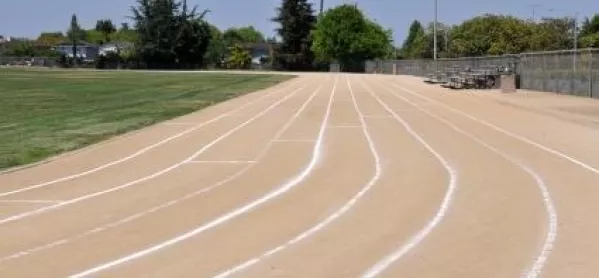PE target runs its course

Scotland has made a “totally pathetic” decision to scrap a weekly minimum allocation for physical education, as England takes precisely the opposite approach.
The aim of giving every pupil in Scotland at least two hours of PE a week has been dropped after councils claimed “narrow targets” were not important. But ministers may yet veto the move.
None of the country’s 32 local authorities has met the target. In contrast, research in England showed that it reached school sports targets a year ahead of schedule.
The two-hour minimum in Scotland was recommended by a PE review group in 2004 and was also an SNP manifesto promise, but it has emerged that it will not be included in the targets for PE to be published next month as part of A Curriculum for Excellence.
In England, however, a school sports survey for 2006-07 showed that 86 per cent of children were participating in at least two hours of PE and sport each week - one percentage point more than the 2008 target.
Scotland’s move was described as “totally pathetic” by John Beattie, the broadcaster and former Scotland rugby international who chaired the physical activity task force which, in 2002, outlined a 20-year plan to improve the nation’s health. He said that if there was no minimum amount of PE, “you are sending out the wrong message”.
As well as having concerns about obesity, he pointed out that depression had been linked to a lack of exercise and suicide was the biggest killer of young men in Scotland.
Mr Beattie expressed anger that Scotland was “dithering” while London prepared for the 2012 Olympics and explicit PE targets encouraged more English children to take part in sport.
“It just shows you we have sportspeople who make it despite the system,” he said.
Charlie Raeburn, chairman of the Scottish Schoolsport Federation, was “majorly disappointed” with the news, which he also contrasted with the “totally different approach” in England. He was unhappy that organisations such as the federation had not been consulted over the new PE curriculum, which he feared would be “vague”. Mr Raeburn added: “I’ve always had concerns that you can’t measure everything in outcomes. Processes are important because you can’t guarantee what’s coming out at the other end. I can train someone, but I can’t guarantee a gold medal at the Olympic Games.” A Scottish Government spokesman said: “Proposals to remove the two-hour PE and physical activity requirement were made by local authorities. However, we will not agree to this unless we are convinced that there are alternatives which are better at delivering fitter, healthier young people.” He said there was “no suggestion that there should be less PE”: health and wellbeing would be a focus throughout the new curriculum. The Government was supporting initiatives such as Aeroskip, a pilot programme in Dumfries and Galloway which suggests that 10 minutes of skipping are equivalent to 30 minutes of aerobic exercise. Isabel Hutton, the Convention of Scottish Local Authorities’ education spokesperson, said: “Local government in Scotland takes seriously its role in improving the health of our children and young people. Health and fitness therefore remain a priority for councils. “However, we are moving away from narrow targets and input measures such as the two hours of PE per week to focus on what is important - improving the health outcomes for children and tackling inequality.” Ironically, the news came as the Scottish Government announced funding of pound;6 million to help at least 20,000 overweight and obese children. Health boards will be charged with setting up treatment programmes for children aged five to 15. The programmes will promote physical activity and healthy eating, and aim to tackle the psychological, social and behavioural causes of weight gain.
Keep reading for just £1 per month
You've reached your limit of free articles this month. Subscribe for £1 per month for three months and get:
- Unlimited access to all Tes magazine content
- Exclusive subscriber-only stories
- Award-winning email newsletters



